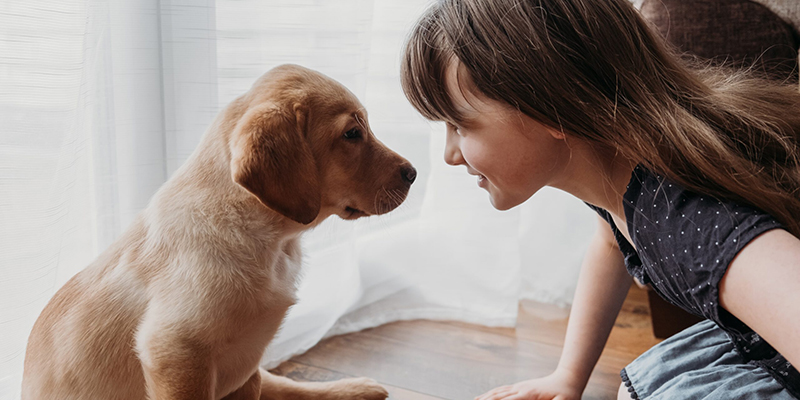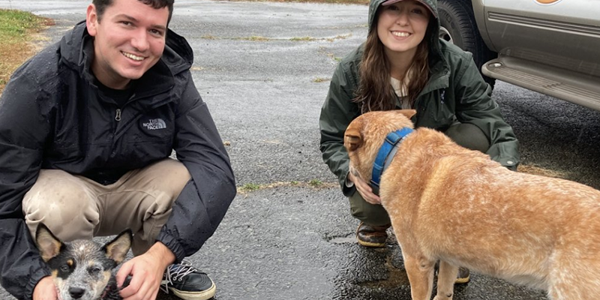Got a new puppy? Great! But now comes the critical part: puppy training techniques. You may even be asking yourself, "Where do I begin?" No need to panic; you are not the only one struggling with that!

Socializing and training a puppy can be daunting, but it can be fun if done appropriately. This guide will walk you through the best methods for training a puppy, especially for beginners.
It is significantly less challenging if you and your puppy start the training at the initial stage of development, even at an early age.
You must start training your puppy when he is between 8 and 10 weeks of age. Here are some basics to begin with:
• Sit: This simple command forms the basis of many other behavioural patterns within any given environment.
• Come is an important signal to recall your pet inside if you have a yard or are in a park.
• Stay: Promotes good behaviour and impulse control in your puppy.
Owning a crate is crucial when it comes to puppy training. Thus, the crate should be considered the puppy's small home, and the dog should be comfortable sleeping in it.
It helps potty train a puppy and can prevent destructive behaviour when you're not home. Here's how to crate train your puppy effectively:
The crate should be comfortable with soft materials such as beds, toys, and feeding bowls.
Never punish your dog for using the crate by dragging, pushing, or yelling at him to get to it. The crate should always be a friendly and warm environment.
Take time each day to spend hours in the crate, but begin with short periods.
Oh, the dreaded accidents! But no worries, potty training a puppy is something every dog owner goes through.
The most crucial point is the long-term and steady approach. Here's how you can get your puppy on the right track:
When your puppy is young, you should take him outside often, especially after meals, drinking water, and getting up from sleep.
Encourage them a lot if you ever see them doing their business outside. Reinforcement makes terrific sense and tends to make beneficial adjustments.
But if they have an accident indoors, do not scold them. Next, clean the area to remove smells and attract them to revisit it.
Quick Tip: If the little companion starts to circle, sniff, or whine, it will mean that they are telling you that it is time to go out. Take them out immediately!
Your puppy must know how to interact with other people and animals. A correctly socialized puppy will be self-assured, relaxed, and cheerful.
Puppy training techniques should always include socialization, starting at an early age. Here's what you should focus on:

Socialize the puppy with other dogs, people, objects, and noises within the confines of your neighbourhood
Introduce your pup to other vaccinated dogs to help them gain dog etiquette.
Spend time with them, especially walking around various places, including parks, streets, shops, etc.
The secret to successful puppy training techniques lies in consistency. Feeding your puppy will be most effective when they know what to expect from you. Here's how to maintain consistency:
You must use the same word and command for any action (for instance, use the word ‘sit’ to mean sit).
Minimize the length of the training session and make it as enjoyable as possible. Puppies are not very obedient, as their concentration span is minimal, so the training should be done in 5-10 minute intervals, 3-5 times a day.
Puppies love rewards, and that's why positive reinforcement is one of the best puppy training techniques. Continually reinforce your puppy's behaviours. If you want it to do something, and it does it right, let it know it did well.
Using a treat, praise, or a game, the puppy will eventually understand that being good gets them the good stuff. A few reinforcement tips:
• Use high-value treats for challenging behaviours you're working on.
• Keep rewards random to keep your puppy excited and engaged.
• Keep it positive and rewarding, never negative or punishing.
• Keep Training, Keep Bonding!
The truth is that training doesn't finish after one or two weeks of classes. Raising a puppy is a lifelong practice, especially when it becomes a good dog.
This means a chance to practice good habits, which can help the puppy become responsible. Congratulations, you are on your way to becoming an expert in training puppies.